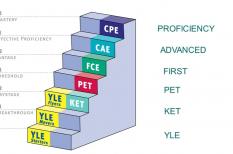1.Đặc điểm riêng giữa động từ V-ing và V-infinitive trong tiếng Anh
| Động từ V-infinitive
| Động từ V-ing |
| Cách dùng To-infinitive: 1.Verb + to V
Những động từ sau được theo sau trực tiếp bởi to-infinitive: agree, appear, arrange, attempt, ask, decide, determine, fail, endeavour, happen, hope, learn, manage, offer, plan, prepare, promise, prove, refuse, seem, tend, threaten, try, volunteer, expect, want,... Ex: - She agreed to pay $50. - Two men failed to return from the expedition. - The remnants refused to leave. - She volunteered to help the disabled. - He learnt to look after himself.
2. Verb + how/ what/ when/ where/ which/ why + to V Những động từ sử dụng công thức này là: ask, decide, discover, find out, forget, know, learn, remember, see, show, think, understand, want to know, wonder... Ex: - He discovered how to open the safe. - I found out where to buy fruit cheaply. - She couldn't think what to say. - I showed her which button to press.
3. Verb + Object + to V Những động từ theo công thức này là: advise, allow, enable, encourage, forbid, force, hear, instruct, invite, order, permit, persuade, request, remind, train, urge, want, tempt... Ex: - These glasses will enable you to see in the dark. - She encouraged me to try again. - They forbade her to leave the house. - They persuaded us to go with them.
| 1.Chức năng
-Là chủ ngữ của câu: dancing bored him. -Bổ ngữ của động từ: her hobby is painting. -Là bổ ngữ: Seeing is believing. -Sau giới từ: He was accused of smuggling. -Sau một vài động từ: avoid, mind, enjoy,...
2. Một số cách dùng đặc biệt
*Những động từ sau được theo sau bởi V-ing: admit, avoid, delay, enjoy, excuse, consider, deny, finish, imagine, forgive, keep, mind, miss, postpone, practise, resist, risk, propose, detest, dread, resent, pardon, try, fancy, recommed, quit, put off, suggest… Ex: - He admitted taking the money. - Would you consider selling the property? - He kept complaining. - He didn't want to risk getting wet.
*Verbs + prepositions: apologize for, accuse of, insist on, feel like, congratulate on, suspect of, look forward to, dream of, succeed in, object to, approve/disapprove of...
*V-ing cũng theo sau những cụm từ như: - It's no use / It's no good... - There's no point ( in)... - It's ( not) worth ... - Have difficult ( in) ... - It's a waste of time/ money ... - Spend/ waste time/money ... - Be/ get used to ... - Be/ get accustomed to ... - Do/ Would you mind ... ? - be busy doing something - What about ... ? How about ...? - Go + V-ing ( go shopping, go swimming... ) |

2. Một số động từ có thể đi cùng V-ing và V-infinitive
Một số động từ có thể đi cùng với cả động từ nguyên thể và V-ing, hãy so sánh sự khác nhau về ý nghĩa giữa chúng.
Stop V-ing: dừng làm gì (dừng hẳn)
Stop to V: dừng lại để làm việc gì
Ví dụ: - Stop smoking: dừng việc hút thuốc.
- Stop to smoke: dừng lại để hút thuốc
Remember/forget/regret to V: nhớ/quên/tiếc sẽ phải làm gì (ở hiện tại – tương lai)
Remember/forget/regret V-ing: nhớ/quên/tiếc đã làm gì (ở quá khứ)
Ví dụ: - Remember to send this letter (hãy nhớ gửi bức thư này)
- Don’t forget to buy flowers (đừng quên mua hoa nhé)
- I regret to inform you that the train was cancelled (tôi rất tiếc phải báo tin – cho anh rằng chuyến tàu đã bị hủy)
- I paid her $2. I still remember that. I still remember paying her $2. (tôi nhớ đã trả cô ấy 2 đô la rồi)
- She will never forget meeting the Queen. (cô ấy không bao giờ quên lần gặp nữ hoàng)
- He regrets leaving school early. It is the biggest mistake in his life. (Anh ấy hối tiếc vì đã bỏ học quá sớm)
Try to V: cố gắng làm gì
Try V-ing: thử làm gì
Ví dụ: - I try to pass the exam. (tôi cố gắng vượt qua kỳ thi)
- You should try unlocking the door with this key. (bạn nên thử mở cửa với chiếc khóa này)
Like V-ing: Thích làm gì vì nó thú vị, hay, cuốn hút, làm để thường thức.
Like to do: làm việc đó vì nó là tốt và cần thiết
Ví dụ: - I like watching TV.
- I want to have this job. I like to learn English.
Prefer V-ing to V-ing
Prefer + to V + rather than (V)
Ví dụ: - I prefer driving to traveling by train.
- I prefer to drive rather than travel by train.
Mean to V: Có ý định làm gì.
Mean V-ing: Có nghĩa là gì.
Ví dụ: - He doesn’t mean to prevent you from doing that. (Anh ấy không có ý ngăn cản bạn làm việc đó.)
- This sign means not going into. (Biển báo này có ý nghĩa là không được đi vào trong.)
Need to V: cần làm gì
Need V-ing: cần được làm gì (= need to be done)
Ví dụ: - I need to go to school today.
- Your hair needs cutting. (= your hair needs to be cut)
Used to V: đã từng/thường làm gì trong quá khứ (bây giờ không làm nữa)
Be/Get used to V-ing: quen với việc gì (ở hiện tại)
Ví dụ: - I used to get up early when I was young. (Tôi thường dậy sớm khi còn trẻ)
- I’m used to getting up early. (Tôi quen với việc dậy sớm rồi)
Advise/allow/permit/recommend + Object + to V: khuyên/cho phép/ đề nghị ai làm gì.
Advise/allow/permit/recommend + V-ing: khuyên/cho phép, đề nghị làm gì.
Ví dụ: - He advised me to apply at once.
- He advised applying at once.
- They don’t allow us to park here.
- They don’t allow parking here.
See/hear/smell/feel/notice/watch + Object + V-ing: cấu trúc này được sử dụng khi người nói chỉ chứng kiến 1 phần của hành động.
See/hear/smell/feel/notice/watch + Object + V: cấu trúc này được sử dụng khi người nói chứng kiến toàn bộ hành động.
Ví dụ: - I see him passing my house everyday.
- She smell something burning and saw smoke rising.
- We saw him leave the house.
- I heard him make arrangements for his journey.
3. Bài tập vận dụng về các dạng thức của động từ
A. Điền dạng đúng của mỗi động từ trong ngoặc đơn sau.
Are you fed up with being (be) a failure in your job? Wouldn’t you rather succeed (succeed)?
Do you want to earn (earn) more money? Are you anxious (1)………………………….. (get) ahead? Do you believe in (2)……………………………(make) the most of your talents? Do you sometimes dream about (3)……………………………….. (reach) the top? If the answer is yes, read on. Just imagine yourself (4)……………………………(run) a big successful company. And now you can do something about it instead of (5)…………………………. (dream). It’ll happen if you want it (6) . … … … … … … … … . . (happen). Make it a reality by (7)……………………………(order) your copy of the best-selling Winning in Business. It has a ten-point plan for you (8) .......... ………………………..(follow). Do it and you’re certain (9)……………………………(be) a success. You’ll know what (10)…………………………. (do) in business. You can make other people (11) .................................... (respect) you and persuade them (12)…………………………. (do) what you want. Experts recommend (13)…………………………. (buy) this marvellous book. You’d better (14)…………………………….(order) your copy today.
B. Hoàn thành những đoạn đối thoại sau. Điền dạng đúng của mỗi động từ trong ngoặc.
Ví dụ: A: I’m annoyed about being (be) late.
B: Well, I told you to set (set) off in good time, didn’t I?
1. A: Did you accuse Nancy of ...................................(break) a plate?
B: Well, it was an accident, but he did break it. I saw him………………………….. (knock) it off the table with his elbow.
2. A: I came here …………………….(see) Daisy. She must have forgotten I was coming.
B: It seems rather careless of her................................. (forget).
3. A: Are you going to have a rest now after………………………... (do) all the cleaning?
B: No, I’ve got some letters ………………………………..(write).
4. A: You say you need some advice?
B: Yes, I’m sorry……………………… (bother) you, but I don’t know who………………………..... (ask).
5. A: Do you like Rita?
B: Well, I used …………………………… (play) it quite a lot, but I got fed up with it. I’d rather ......................... (watch) television, actually.
C. Chọn dạng đúng của động từ sau:
1. The teacher decided (accepting/to accept) the paper.
2. They appreciate (to have/having) this information.
3. His father doesn’t approve of his (going/ to go) to Europe.
4. We found it very difficult (reaching/ to reach) a decision.
5. Donna is interested in (to open/opening) a bar.
6. George has no intention of (to leave/leaving) the city now.
7. We are eager (to return/returning) to school in the fall.
8. We would be better off (to buy/ buying) this car.
9. She refused (to accept/ accepting) the gift.
10. Mary regrets (to be/being) the one to have to tell him.
11. George pretended (to be/being) sick yesterday.
12. Carlos hopes (to finish/finishing) his thesis this year.
13. They agreed (to leave/leaving) early.
14. Helen was anxious (to tell/ telling) her family about her promotion.
15. We are not ready (to stop/stopping) this research at this time.
16. Henry shouldn’t risk (to drive/driving) so fast.
17. He demands (to know/knowing) what is going on.
18. She is looking forward to (return/returning) to her country.
19. There is no excuse for (to leave/leaving) the room in this condition.
20. Gerald returned to his home after (to leave/leaving) the game.
D. Hoàn thành mỗi câu sau với một trong các động từ sau: apply, be, be, listen, make, see, try, use, wash, work, write. (chia động từ theo đúng dạng)
1. Could you please stop………………..so much noise?
2. I enjoy …………………to music.
3. I considered …………………..for the job but in the end I decided against it.
4. Have you finished ………………………your hair yet?
5. If you walk into the road without looking, you risk………knocked down.
6. Jim is 65 but he isn’t going to retire yet. He wants to carry on………………
7. I don’t mind you……………the phone as long as you pays for all your calls.
8. Hello! Fancy …………..you here! What a surprise!
9. I’ve put off ………………..the letter so many times. I really must do it today.
10. What a stupid thing to do! Can you imagine any body ……………..so stupid?
11. Sarah gave up …………………..to find a job in this company and decided to go abroad.





